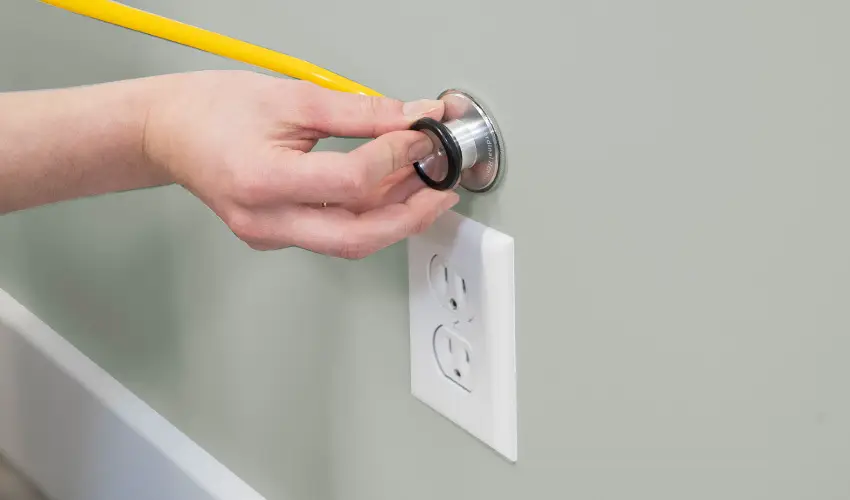
Mr. Electric explains that while you can't hear electricity itself, you may hear sounds from electrical devices.
|
What does electricity sound like? Have you ever noticed an indistinct humming sound coming from an electrical appliance and wondered, Is it possible to hear electricity? Many people report that they can “hear” or “feel” electricity in devices. Maybe the sound on your TV is muted, but you still hear that it’s on, or perhaps you’ve noticed overhead florescent lights or high-voltage power lines emitting a faint buzz. Some people are highly sensitive to these sounds, and others learn to tune them out.
You may not have detected them before, but if you listen closely, humming electricity sounds are all around us. The incessant buzzing noise even has its own name: “mains hum.” While some people find it annoying, others report that they find it sort of soothing, like white noise from a fan.
What Does Electricity Sound Like in Household Appliances?
Why does electricity make noise? That hum we hear is actually a by-product of electricity. It occurs as the alternating current (AC) flows through an appliance or electrical panel, creating varying magnetic fields. These magnetic fields cause internal components of the transformer to vibrate, often at a frequency of 50 to 60 Hz, which is within the range of human hearing (20 to 20,000 Hz.) Generally, appliances or devices that operate at a high voltage will produce more audible sounds, while low-voltage items may only be heard by a select few.
Other times, the “sounds of electricity” are more apparent. Have you ever been glued to your television, listening intently to your favorite show, only to have the sound interrupted by a burst of static? Sometimes appliances like hair dryers or power drills may interfere with your television when both are in use at the same time. Ensuring that your sensitive electronic devices are connected to surge protectors and power conditioners can greatly reduce this phenomenon and keep your devices functioning properly.
Buzzing from High-Voltage Power Lines
The noise from overhead power lines typically comes from corona discharge, which occurs when the air around the power line is ionized. Robert Dent, President of IEEE Power Engineering Society explained in 1999:
The audible noise emitted from high-voltage lines is caused by the discharge of energy that occurs when the electrical field strength on the conductor surface is greater than the 'breakdown strength' (the field intensity necessary to start a flow of electric current) of the air surrounding the conductor.
Essentially, as stray electrical discharges travel through the air surrounding the power lines, a hissing sound is created. This occurs more often at high voltage levels and during humid or wet weather when moisture in the air increases conductivity. The sound may be unnerving, but it typically does not pose a hazard to nearby people.
When to Be Concerned About Electrical Noise
Low, steady humming or buzzing in household appliances or devices is usually nothing to worry about. If you notice sounds that are louder than usual, or hear crackling, sizzling, or other unusual noises, unplug the device immediately and have it inspected by a professional before further use. If your florescent lighting has recently started buzzing loudly or flickering, the light ballast may need to be replaced.
Pay special attention to your circuit breaker panel. A quiet, steady hum that can only be heard when you are in close proximity is normal, but loud buzzing, sizzling, or sparking likely means there’s a damaged wire or circuit breaker. In this case, trying to fix the problem yourself may be dangerous. Promptly call a professional to investigate the issue and fix the problem!
Seek Professional Help for Electrical Noise Concerns
When it comes to electricity and expensive electrical devices, it’s always better to be safe than sorry. Damaged electrical wires or components can cause electrocution or fire, and attempting to fix faulty appliances on your own may void your warranty. If you have any concerns regarding your electrical panels, wiring, or electrical devices, contact Mr. Electric online or call to schedule an appointment.

